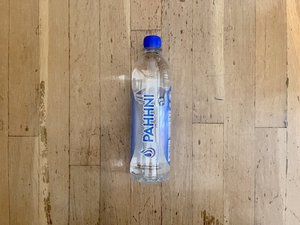Kerry Murphy spoke to her share of real estate agents before putting her Over-the-Rhine home on the market. She left each conversation wondering the same thing: What was an agent providing that she couldn’t do herself?
The internet makes it easier than ever for buyers to shop for homes. And the local housing market has been on a yearslong hot streak that even historically high interest rates haven’t been able to cool, creating an opportune time for sellers like Murphy.
“Why should I pay 6% for a Realtor when, given where I live on Orchard Street – which everybody would always tell me was the best street in the city – it was a house that would just sell itself?” she said.
Enter Homeshake.
The real estate startup replaces the traditional model of agents and commissions with a peer-to-peer platform. It directly connects buyers and sellers, and because of that, commissions are virtually nonexistent – buyers pay nothing and Homeshake takes a 1% commission from sellers.
For Murphy, using Homeshake meant her house literally did sell itself.
She listed the Italianate-style dwelling on Homeshake in early August. The property transferred Nov. 7, 2023, and sold for $600,000.
Murphy saved about $37,000 in commissions by using Homeshake – enough to splurge on a jet ski, or even a new car.
Murphy isn’t alone. Homeshake has saved its customers nearly $2.5 million in commissions to date, according to co-founder and CEO Nick Rabin.
It’s a significant figure, and one that stands to grow as a result of the National Association of Realtors’ $418 million settlement to end the wave of class-action lawsuits targeting its commission structure (see more below). Both brokerages and the NAR – the nation’s largest trade organization with more than 1.5 million registered Realtors – were named in lawsuits that allege several of the association’s practices unfairly inflate commissions for buyer agents. Experts said the settlement could reshape how real estate agents are compensated and trigger a 30% drop in annual commission for agents, rocking one of the largest drivers of the U.S. economy.
It’s a pivotal moment in the real estate industry that Homeshake is eager to seize. With the future of the commission model of real estate in the balance, Homeshake is poised to stake its claim in the estimated $100 billion commission pool in the industry.
“It means more listings, a bigger buyer pool,” Rabin said. “Moving forward, buyers have to figure out how to pay for a traditional agent, out of pocket or some other way. We’re ahead of this. Our business is built for this.”
While Homeshake did not share revenue figures, the company’s year-over-year growth was 178% in year three compared with year two, following 195% growth from year one to year two. Fourth quarter 2023 – typically a down time for home sales – was Homeshake’s best to date. And as of early March, Homeshake says it’s poised to have an even more successful first quarter of 2024.
“For us to be stacking these quarters of growth on top of each other in seasons where you shouldn’t be … it’s all really good news,” Rabin said.
The last frontier
Last year was big for Homeshake. While rounding out the year with 300% growth between fourth quarter 2022 and 2023, it expanded services into Northern Kentucky.
There was a lot happening – both new and old – that fueled the growth.
With a few years under its belt – Homeshake launched and clinched its first sale in 2020 – the company is starting to see word-of-mouth spread.
Murphy, in fact, learned about the company through a neighbor that knew Homeshake co-founder Jonathan Bennie. She sang praise to another Orchard Street neighbor after selling through Homeshake.
“The word of mouth and now the powerful effect of referrals – it begins to compound,” Rabin said.
Homeshake set off on roadshows throughout the region to make personal connections with and pitch its model to law firms, wealth managers, banks and lenders. It also made appearances at local home shows.
“Meeting as many people as we can and telling the Homeshake story is what’s going to find us our next 100 sellers,” Bennie said.
The people Homeshake meets love talking about the startup’s model and issues regarding the real estate industry – especially debating the fairness of commissions, Bennie said.
“We think it’s the last frontier,” Rabin said of evolving the real estate industry. “Americans don’t like overpaying for OK service, or bad service – nobody likes that.”
Consumers have seen commissions for adjacent professionals – like travel agents and investment advisers – come down in recent years. Tim Savage, clinical assistant professor at New York University’s Schack Institute of Real Estate, said agents bring important knowledge to the table, and they should charge for it. But in the age of modern trading, he said 6% commissions make less sense.
“Real estate professionals like to make the point that real estate is somehow unique,” Savage said. “Travelocity revolutionized the travel industry, and fees declined considerably. There is no reason to believe that real estate is somehow a unique asset or a unique commodity. It isn’t. It’s just the fact that technology has been more slowly adopted in real estate than in other areas.”
The agent advantage
There’s a common misconception about Homeshake: It’s not out to eliminate the role of real estate agents.
“We have it out for the system – not agents,” Bennie said. “Agents work very hard, and there are a lot of agents who, I don’t know if I’d pay 6%, but I’d pay a lot of money for.”
In an industry that’s historically lacked choice, Homeshake provides an alternative.
Scott Nelson, CEO of real estate agency Comey & Shepherd, said it’s important to note nobody knows the full impact of the litigation clouding the industry yet. There will likely be more industry players that settle in cases. The NAR agreement, once approved by a judge, would resolve all claims against the NAR, its members and all state and local Realtor associations, MLSs and all brokerages with an NAR member as a principal that had a transaction volume of $2 billion or below.

In the wake of NAR’s settlement, it could force some out of the industry: Agents who work part-time may struggle to demonstrate value to consumers, Nelson said, with some speculating 20%-30% of the industry’s part-time agents may exit if fee splitting becomes a way of the past.
Tracy Dunne, chief operating officer of Comey & Shepherd, said the industry might see fewer hobbyists – agents who may only close a few deals each year, mostly with family and friends.
But regardless of the settlement’s result, Dunne and Nelson echo Bennie’s sentiments: Agents will always have value.
“You can sell your own stocks, you can make your own travel arrangements, but there are some people who still choose to use a professional to do those sorts of things for them,” Dunne said. “We feel there will always be a need for Realtors in the marketplace.”
Dunne and Nelson pointed to real estate agents’ skills with negotiating and their understanding of market segments as two value-adds. Nelson also said younger, first-time buyers are increasingly turning to real estate agents to help them navigate the process.
Gary Painter, academic director of the University of Cincinnati’s real estate program, said industry litigation forces consumers to think about the bundle of services that agents provide – and if it’s worth the commission. Former advantages like MLS access are no longer relevant, but market knowledge and filling out paperwork remain evergreen.

Buyers and sellers also must consider the state of the housing market, with rising home prices and slim inventory. Some can’t justify high commissions in addition to a house that’s over asking price if their agent interaction is minimal.
“As house prices have appreciated, it remains unclear to some … if the value that the real estate agent has, has also climbed at the same rate of house prices,” Painter said.
An industry shake up?
Rabin and Bennie believe 2024 has the potential to be Homeshake’s year of breakout growth.
“We don’t let ourselves get too carried away,” Rabin said. “We’re focused every day on our customers, our business – the things that got us this far, we’ll continue to focus on moving forward … at the end of the day, what gets you there is, ‘Are you doing the work and focusing on your customers today?’”
Homeshake has four full-time employees, and it works with a variety of contractors. This year will see the startup hire across customer service, its transaction group, software and marketing. Transaction group growth would be a new real estate attorney.
Rabin said the marketing hires may be focused on the social and digital end as the startup targets growing its presence on social media platforms.
Homeshake’s digital footprint is very important, Bennie said. People at the roadshow and at home shows will search for Homeshake online and find, as of early March, a five-star average on Google.
That’s something Homeshake strives to maintain, but Bennie said the focus is first and foremost personal connections.
Homeshake is in conversations about entering new markets, though the company is not ready to make those plans public.
Aspirations include local, regional and national expansion, each of which will probably look different, Rabin said.
Homeshake has been approached by parties both inside and outside the real estate industry interested in franchising.
That’s on the table, Bennie said.
Homeshake has a model that could win, NYU’s Savage said. The question for Homeshake – and others like it – is scalability.
Property technology startups that use artificial intelligence are often voracious users of data. AI benefits from having more data to pull from, and with that comes the need to scale.
Homeshake isn’t a complicated idea, Painter said, but it and similar proptechs will likely complete a “rinse and repeat” process as they scale. With each market entry, Homeshake will need to kickstart local word-of-mouth advertising to build trust and a client base.
But once that happens, Homeshake may find itself among similar company.
“You’ll see seasoned homebuyers and sellers most attracted first to them, and then eventually, you’ll see they’ll have competitors themselves in that industry,” Painter said. “The industry is going to see kind of a transformation of the unbundling of services that were traditionally provided by a buyer’s agent, seller’s agent … that will be priced in a more competitive way for the consumer and/or the home seller
-Editor Tom Demeropolis contributed to this report








